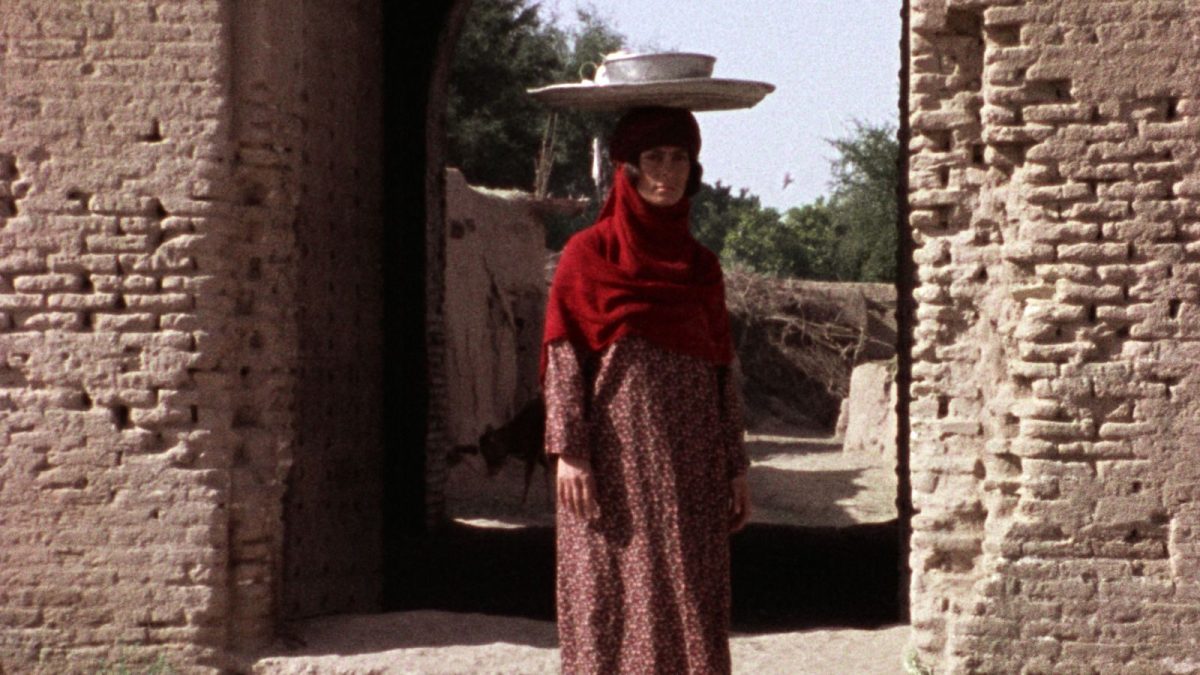A digital restoration of Iranian filmmaker Marva Nabili’s 1977 film, “The Sealed Soil,” recently screened at the 62nd New York Film Festival as part of its revivals section — which has once again proven to be a haven for seminal Middle Eastern cinema. Where the program’s previous selections have focused greatly on global politics, Nabili’s film takes a rebellious feminist approach, telling a story of a young woman living in a rural village in pre-revolution Iran who finds herself confined by societal constraints, patriarchal structures and tedious routine.
Roo-Bekheir (Flora Shabaviz) is now 18 and has been rejecting an overwhelming string of marriage proposals in defiance of tradition and custom. Throughout the film, she is constantly ostracized by other women in the village for refusing to marry — a lack of empathy which results in an emotionally devastating final act. As “The Sealed Soil” begins, the narrative is admittedly quite unremarkable: Roo-Bekheir wakes up, gets dressed, feeds the chicken, sets up a fire, prepares food and goes about the same routine every single day. Repetition is a tool for Nabili, used by the filmmaker to outline our female protagonist’s concealed sense of dread, apathy and desire to rebel against patriarchy. Very rarely throughout the film does Roo-Behkeir speak, let alone express even a mere ounce of emotion — she is the personification of female nonconformity in the context of an Iran facing a significant political and industrial transition.
Nabili’s film isn’t without its vibrant historical climate. “The Sealed Soil” was shot in 1976, just three years before the Islamic Revolution. Toward the end of his reign, Iran’s Shah Mohammad Reza Pahlavi had hoped to modernize the country in a very Western sense of the term, namely through advancing Iran’s education system and industrializing communities. The latter is demonstrated through a government-mandated construction project that would force Roo-Bekheir and her family to relocate.
“The Sealed Soil” has quite a rich history as the earliest surviving Iranian film directed by a woman. The film was shot in 16-millimeter film over the course of just six days as part of Nabili’s thesis for film school. She then packed the original negative into a suitcase, smuggled it out of Iran and began the editing process at her university in New York. The film was shot entirely without sound, with Nabili herself having added the dubbing in Farsi and sound effects post-production in the United States. Despite making rounds in the international film festival circuit after its initial distribution, “The Sealed Soil” was never screened in Iran.
At a Q&A session following the Oct. 5 screening, Nabili repeatedly cited French director Robert Bresson as an inspiration for her style of filmmaking, from employing the use of non-professional actors to her minimalist framing. While the French auteur is a clear creative influence for “The Sealed Soil,” there are many instances in which Nabili’s style reflects those of Bengali filmmaker Satyajit Ray and Japanese filmmaker Yasujirō Ozu. One moment in particular toward the middle of the film — in which the female protagonist is caught in isolation, sitting in the rain and undressing in the woods — is staggeringly similar to a scene in Ray’s “Pather Panchali,” where one of the child protagonists is seen dancing in the rain. Despite the difference in purpose of both scenes, they each emanate a sense of cinematic poetry that, in Nabili’s case, strives to capture Roo-Bekheir’s brief moment of liberation — one of the few times throughout the film in which she is genuinely free.
“The Sealed Soil,” at its core, is a story of repression — and one that is told with vigor and confidence. Nabili showcases Roo-Bekheir’s longing for individuality and quiet rebellion with striking beauty and critical thought, ultimately crafting one of the most prolific pieces of feminist cinema that, in nearly every respect, breaks boundaries and intensely explores the female subject under the weight of patriarchy.
“The Sealed Soil” will screen at the New York Film Festival on Oct. 9.
Contact Yezen Saadah at [email protected].


























































































































































